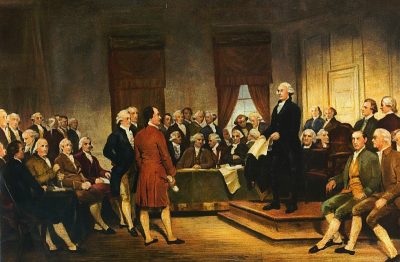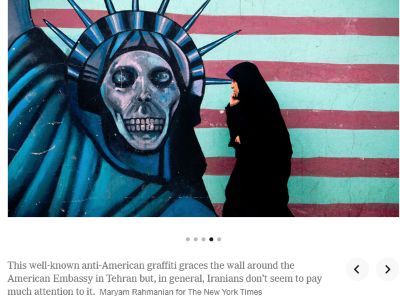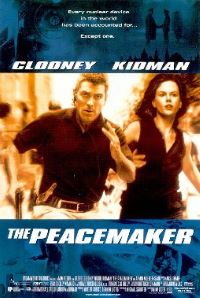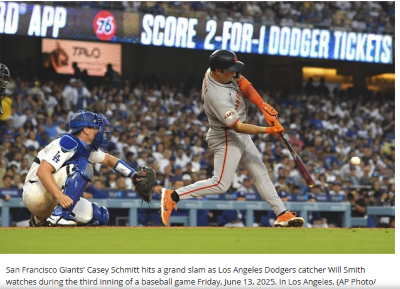
Shortly after the Bicentennial, Bob Feinman, my father, created Convention II. It was a mock constitutional convention run by and for high school students. It was not about laws but about amendments. The students would propose, debate, and sometimes even ratify changes to the Constitution. The 2/3 vote requirement for passage made it difficult but not impossible for a proposed amendment to pass.
Convention II was held in Washington, D.C., in the House of Representatives. The students for and against a given amendment would debate the proposed amendments in the various committee and meeting rooms of the House of Representatives. If the proposed amendment was voted out of committee then it would be debated before the full body of students. That debate occurred on the floor of the House of Representatives, a chamber rarely used on weekends. I am sure the tourists who entered the chamber and looked down were first shocked to find people there, second shocked to find out they were young people, and third shocked to find out that the speakers made sense. Again, for the students from around the country who didn’t know each other to garner support for their favorite amendments during a weekend of no sleep was part of the learning experience.
As reported in the Washington Post “Constitutional Parley Tests Students’ Skills At Lawmaking”:
Convention II, the only outside organization allowed to meet on the floor of the House, where participants wound up the five-day convention on Saturday, is run by Southeastern University’s Center for the Study of Federalism, based in the District.
The program was born eight years ago in the mind of New Rochelle, N.Y., politician and lobbyist Boris Feinman, who “got fed up and annoyed with the stupidity of most people about their form of government and how it works,” he said. He set out to put excitement back into learning the political process.
Feinman said Convention II is “an experience the students will remember for years to come.” It is not only an exercise in governmental procedures, he said, but a lesson in human relationships.
“We’ve got all kinds of people in there, from the coal miner’s kid to the Harvard-Ivy League type. But at the end of a four-day pressure-cooker session here, you’d be surprised at how these kids respond. They’ll sling away verbally at each other. But what comes out is a beautiful understanding of each other based on practical political dealings.”
My father’s hope was that a college in the District of Columbia (or elsewhere) would adopt the program. He did have some brief success with Southeastern University but the financial support wasn’t there and it was unable to sustain the program. My father labored on because for him it was a labor love. He believed democracy was a hands-on sport and the that the future adult citizens in a democratic society needed hands-on training and preparation if they were to be ready for the job as adults.
Over the years, my father had worked at all grade levels to bring students into the political arena where the sausage is made. In New Rochelle, NY, where we lived he brought elementary school students into the city council chambers. The students sat in the chairs of the mayor and council people and debated local issues. He traveled to the county seat in White Plains and the state capital in Albany before taking it to the next step and the floor of the House of Representatives.
One thing you quickly realize along they way is that for the most part these rooms are empty. Our legislators don’t have 9-5 five days a week 52 weeks a year jobs. There is always space available if someone asks and if the legislators are willing. Usually my father would begin the process through his own representative at the local, county, and state level. Working on the Bicentennial helped introduce him to other people at the federal level. For awhile he even was sharing an apartment with multiple Representatives who don’t buy homes in D.C. but room together to minimize expenses. I believe that arrangement still exists today. In any event, it did pay off and my father was able to bring high school students into the House of Representatives where they debated proposed amendments to the Constitution.
I doubt if such access would be possible today. I also wonder if the mock convention would even work. Security procedures have changed since then. The atmosphere is much more contentious now then it was back then – each of the two political parties undoubtedly would want to make sure that the student participants voiced only acceptable positions and didn’t support passage of something crazy. However it would be easier to televise the proceedings and give all Americans a glimpse into the level of discourse of which high school students are capable.
On the other hand, we have just seen that happen in the real world. Right now in a still ongoing process students are taking the lead where adults fear to tread. Death of fellow students has sparked the survivors to action in the adult world. They are seeking change and are politicking the adult legislators to affect such changes. Whether they will succeed or not is not yet known and what any legislated changes might actually pass also remains unknown. Still, this effort is civics in the raw complete with a televised visit to the White House with the President of the United States and appearances on TV news and talk shows. A mock convention this is not.
We also have had the opportunity to observe the reaction by some Americans to the sight and sound of these survivors calling for action so never again would such a massacre occur. We have heard that these outspoken students are not really survivors but actors. We have heard that the students are not expressing their thoughts but are reciting lines they have been coached to speak as if they were carrying cards to remind them of what to say. We have heard that the parents of the survivors who speak out have received death threats. We have heard that the impassioned words, emotional collapses, and call for change are all part of prepackaged show, that trained performers are dispatched at a moments notice to travel to sites of disaster to proclaim their anti-American agenda. We should realize that there is no “come let us reason together” between people who inhabitant alternate universes is possible.
All the more reason for restoring to civics to the k-12 curriculum. If Americans when growing up don’t learn how to talk to each other, then there is little likelihood they will develop that skill as adults. If all debates assume apocalyptic proportion as a cosmic fight for the fate of the universe, then no change for the better is possible. Perhaps watching our kids debate in the halls of power will become as highly watched as some other competitions.
There was a time once before when students, more likely in college than high school, spoke out for change. At that time the death they sought to avoid was their own death over there, in Vietnam, and not here in their own schools. The President responded with a call for more guns in Vietnam. He became a one term President who chose not to risk the wrath of the American voter. This time the President called for more guns in the school. How will the students react this time? How will the voters react?





